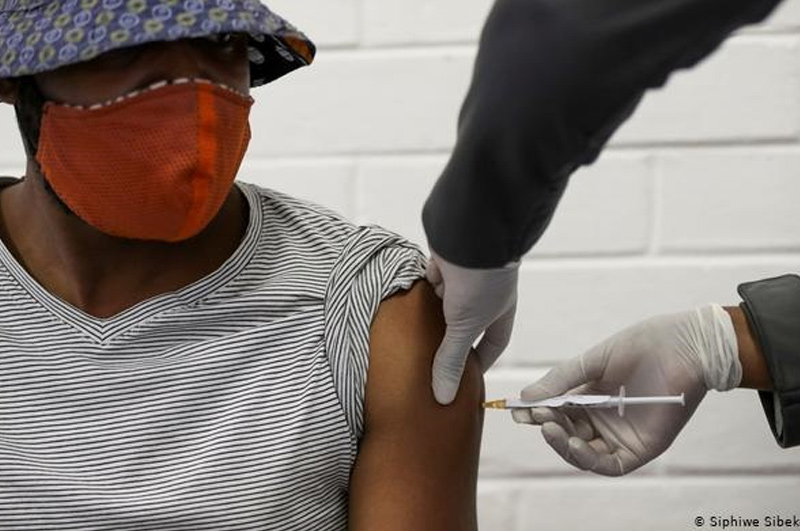

Prioritising Health to Secure Africa’s Future.
26 August 2024: Brazzaville, Republic of Congo. As the Seventy-fourth session of the World Health Organization (WHO) Regional Committee for Africa convened in Brazzaville, it was evident that the health landscape across the continent stands at a crucial crossroads. With representatives from all 47 countries in the WHO African Region gathered, the session provided a pivotal platform for African nations to redefine and strengthen their commitment to public health.
The Jesuit Justice and Ecology Network - Africa (JENA) took a proactive stance by participating in a special side event focused on the prevention of cervical cancer. Fr Charles Chilufya, SJ, Director of JENA led a presentation highlighting the urgent need for widespread HPV vaccination and regular screenings to combat this highly preventable disease. JENA's involvement underscores the critical role that faith-based and community organisations can play in health advocacy and education, particularly in regions where traditional healthcare outreach is limited.
 Fr Charles Chilufya, SJ, Director of JENA with the Director General of World Health Organisation (WHO), Dr. Tedros Adhanom Ghebreyesus.
Fr Charles Chilufya, SJ, Director of JENA with the Director General of World Health Organisation (WHO), Dr. Tedros Adhanom Ghebreyesus.
The need for such a reinvigoration has never been more urgent. Africa grapples with a dual burden of infectious diseases and a rising prevalence of non-communicable diseases. This challenge is compounded by health systems that often lack the resilience to manage such diverse threats effectively. According to the WHO, while Africa carries approximately 17% of the global population, it bears a disproportionate 23% of the global disease burden.
This year's Regional Committee session was particularly significant as it marked the end of Dr. Matshidiso Moeti’s ten-year tenure as Regional Director. Under her leadership, the region has had laudable public health victories, such as the eradication of wild poliovirus and significant reductions in HIV transmission rates. However, much remains to be done.
The high rates of child mortality are a distressing reminder of the continent’s vulnerabilities — nearly 5.2 million children under five died in 2020, with a substantial number of these deaths occurring in Sub-Saharan Africa. Moreover, diseases like polio and cervical cancer, although preventable, continue to claim lives due to inadequate healthcare infrastructure and limited access to essential vaccines and screenings.
The WHO Director-General, Dr. Tedros Adhanom Ghebreyesus, praised the efforts in primary healthcare improvement and emergency preparedness but also pointed out the continuous need for robust health systems capable of withstanding global health emergencies, as evidenced by the recent mpox outbreaks.
During the session pproximately 800 delegates, including international health experts, NGO representatives, and policymakers, engaged in discussions that will shape the continent's health policies for the coming years. These deliberations are not just bureaucratic formalities but are vital for forging a path toward a healthier, more resilient Africa.
The call to action is clear: Africa must prioritise its health not just as a matter of policy, but as a fundamental right for its people. With concerted effort and international cooperation, we can transform the continent into a beacon of health and well-being.
Select Payment Method
Pay by bank transfer
If you wish to make a donation by direct bank transfer please contact Fr Paul Hamill SJ treasurer@jesuits.africa. Fr Paul will get in touch with you about the best method of transfer for you and share account details with you. Donations can be one-off gifts or of any frequency; for example, you might wish to become a regular monthly donor of small amounts; that sort of reliable income can allow for very welcome forward planning in the development of the Society’s works in Africa and Madagascar.
Often it is easier to send a donation to an office within your own country and Fr Paul can advise on how that might be done. In some countries this kind of giving can also be recognised for tax relief and the necessary receipts will be issued.




